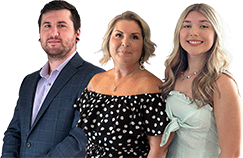
What You Need To Know About Saving for a Home in 2024
If you’re considering purchasing a home, the prospect of budgeting and saving might seem daunting, but it doesn’t need to be. A helpful approach to alleviating these concerns is to gain a clear understanding of the potential upfront expenses. To achieve this, rely on reputable real estate professionals who can assist in devising a plan and conducting a thorough assessment of your budget and the overall process well before you begin.
Here are just a few things experts say you should be thinking about.
1) Down Payment
As you initiate the process of buying a home, accumulating your down payment is likely a primary focus. However, are you aware of the exact amount you need? Each buyer’s circumstances vary, and there’s a prevalent myth that a 20% down payment of the purchase price is mandatory. Contrary to this belief, an article from the Mortgage Reports clarifies why this isn’t always necessary.
The idea that you have to put 20% down on a house is a myth. . . . The right amount depends on your current savings and your home-buying goals.”
To explore your alternatives, collaborate with reliable real estate professionals to discuss different loan types, down payment assistance programs, and their respective requirements. The greater your pre-existing knowledge, the smoother the overall process will become.
2) Closing Cost
Ensure that you allocate funds for closing costs, comprising a range of fees and payments directed to the different parties engaged in your transaction. This aspect is elucidated by Bankrate:
“Closing costs are the fees you pay when finalizing a real estate transaction, whether you’re refinancing a mortgage or buying a new home. These costs can amount to 2 to 5 percent of the mortgage so it’s important to be financially prepared for this expense.”
For a comprehensive understanding of what you’ll require at the closing table, it’s advisable to collaborate with a reliable lender. They can furnish you with answers to any questions you may have.
3) Earnest Money Deposit
To ensure thorough preparedness, you might also contemplate saving for an earnest money deposit (EMD). An EMD is a sum of money paid as a demonstration of good faith when submitting an offer for a house. According to Realtor.com, this typically ranges between 1% and 2% of the total home price.
This deposit functions as a credit, not an additional cost. Essentially, you’re paying a part of your expenses in advance. By utilizing a portion of the funds you’ve already set aside for your purchase, you demonstrate to the seller your commitment and earnestness in buying their house. Realtor.com details how this integrates into your sale process:
“It tells the real estate seller you’re in earnest as a buyer . . . Assuming that all goes well and the buyer’s good-faith offer is accepted by the seller, the earnest money funds go toward the down payment and closing costs. In effect, earnest money is just paying more of the down payment and closing costs upfront.”
Remember, an EMD isn’t obligatory, nor does it ensure that your offer will be accepted. Collaborating with a real estate advisor is crucial to comprehend what’s most suitable for your circumstances and any particular requirements in your locale. They will guide you on the appropriate steps to take, enabling you to make the most informed decisions during the home-buying journey.
Bottom Line
When buying a home, being informed about what to save for is key. Let’s connect so you’ll have an expert on your side to answer any questions you have along the way.
What You Need To Know About Saving for a Home in 2024

What You Need To Know About Saving for a Home in 2024



